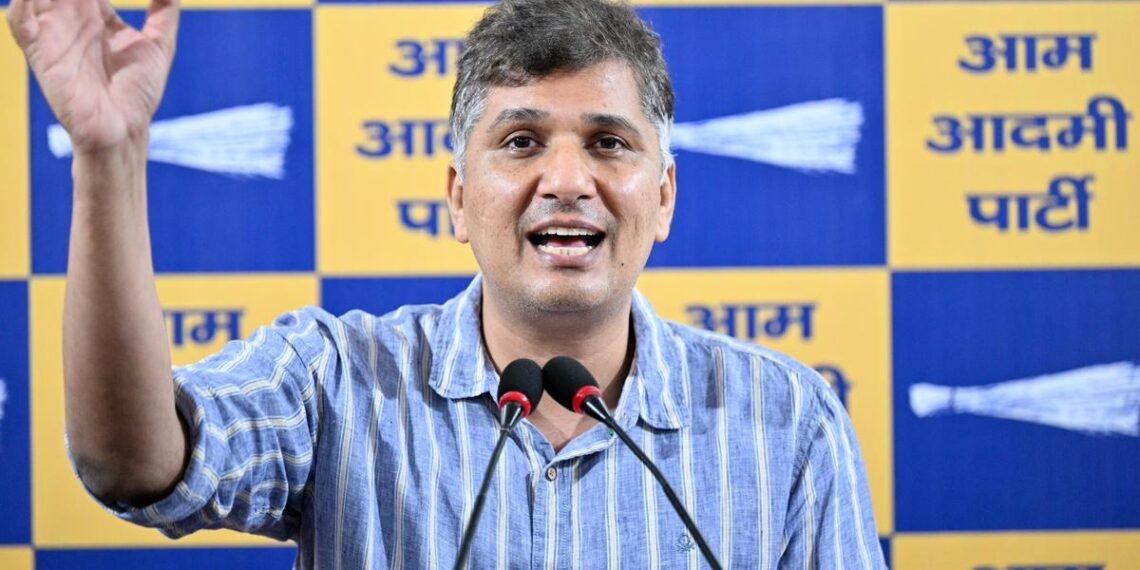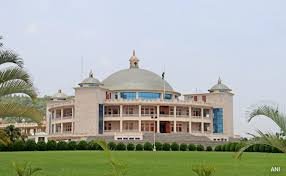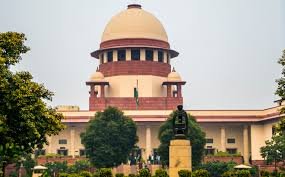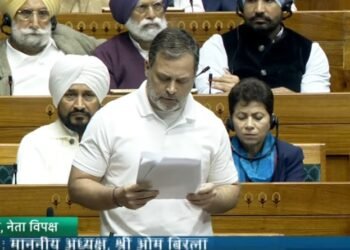The case stems from a complaint alleging corruption in 24 hospital projects sanctioned in 2018–19. ED claims massive cost escalations and delays; no hospital projects were completed on schedule.
BY PC Bureau
New Delhi, August 26 – The Enforcement Directorate (ED) on Tuesday carried out searches at 13 locations, including the residence of former Delhi minister and senior AAP leader Saurabh Bhardwaj, in connection with a money laundering probe linked to alleged irregularities in hospital construction projects.
The searches, conducted in Delhi and nearby areas, are part of an investigation into suspected corruption in the sanction and execution of 24 hospital projects worth ₹5,590 crore during the Aam Aadmi Party (AAP) government’s tenure. Officials said details of assets seized or discrepancies found have not yet been disclosed.
AAP condemned the raids, calling them “a diversionary tactic” by the BJP-led Centre. “The case is false and dates back to a time when Bhardwaj wasn’t even a minister,” the party said in a statement.
Bhardwaj, a three-time MLA from Greater Kailash, has previously held key portfolios including Health, Urban Development, and Water. He also chaired the Delhi Jal Board and is a prominent spokesperson for AAP.
The ED probe stems from an August 2024 complaint by then Leader of Opposition Vijender Gupta, alleging large-scale corruption in hospital projects sanctioned in 2018–19. These included plans for 11 new hospitals and upgrades to 13 existing ones.
READ: NSCN: Naga Peace Process is Between 2 Sovereigns; Flag, Constitution Non-negotiable
Investigators allege the projects were marred by delays, unexplained cost escalations, and possible embezzlement. Not a single hospital was completed on schedule.
Enforcement Directorate (ED) is conducting searches at 13 locations across Delhi-NCR under Section 17 of the PMLA in connection with the Delhi Hospital Construction Scam. The probe relates to FIR 37/2025 registered by Delhi Police’s ACB against AAP leader Saurabh Bhardwaj, former… pic.twitter.com/rTM4AJGH4Y
— IANS (@ians_india) August 26, 2025
Among the flagship projects was the ₹1,125 crore ICU Hospital scheme, which aimed to add 6,800 beds across seven pre-engineered facilities. Despite massive spending, officials say the project remains only half finished.
What Was the Alleged Scam?
According to officials, the suspected scam involved inflated tenders, manipulated contracts, and irregular payments to contractors during the sanctioning and construction phases. Several companies allegedly received advance payments running into hundreds of crores without showing adequate progress on the ground.
Sources within the ED suggest that cost escalations of up to 30–40% were approved without proper justification. In some cases, contractors reportedly abandoned worksites after pocketing substantial sums, while new tenders were floated at higher costs.
Another red flag was the use of pre-engineered building (PEB) technology for the ICU Hospital Project. While touted as a faster and cheaper method, the ED claims contractors overbilled for imported materials and machinery. The mismatch between expenditure and actual construction progress has become the cornerstone of the money laundering probe.
READ: Delhi HC Quashes CIC Order on Modi’s Degree Disclosure
Officials also allege that middlemen and politically connected individuals siphoned funds meant for medical infrastructure into shell companies. “Several hundred crores in payments remain unaccounted for, even as hospitals exist only on paper or are left half-built,” a senior official said.
The ED’s action comes at a time when several AAP leaders are already under the scanner of central agencies in unrelated cases, intensifying the political face-off between the party and the BJP. The ruling party at the Centre maintains that its actions are guided purely by law, while AAP has consistently alleged misuse of investigative agencies to cripple opposition voices.
Legal experts point out that if the ED substantiates claims of fund diversion, it could trigger further probes by the CBI and anti-corruption bodies. However, they also caution that many of the projects cited were still ongoing, making it difficult to separate administrative lapses from willful wrongdoing at this stage. Project remains only half finished.














